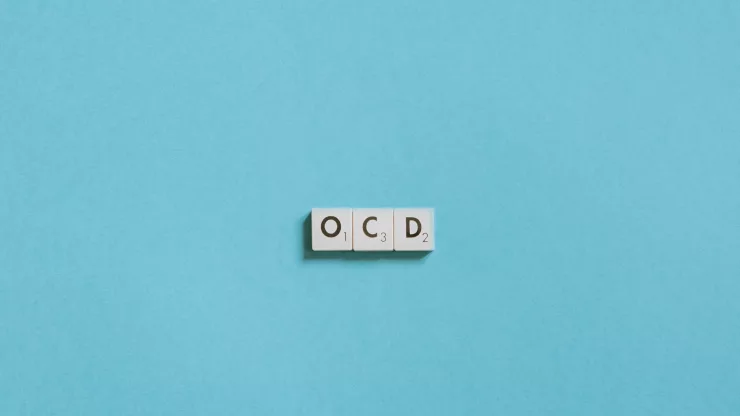The Importance of Fighting Eating Disorders
Eating disorders are serious mental illnesses that affect millions of people worldwide. They can cause a range of physical and emotional health problems, including malnutrition, heart disease, depression, and anxiety.
Eating disorders can also have a significant impact on a person’s relationships, work, and overall quality of life.
Therefore, it’s essential to recognize the signs of an eating disorder and seek help as soon as possible.
Recovery from an eating disorder is possible with the right treatment and support. However, it can be a challenging journey, and relapses are common.
Therefore, it’s crucial to develop strategies for maintaining long-term recovery and finding happiness and well-being beyond the eating disorder.
Jump to Section
Recognizing Eating Disorders and Seeking Help
Eating disorders come in different forms, but they all involve unhealthy relationships with food and body image. Some of the most common eating disorders include anorexia nervosa, bulimia nervosa, binge-eating disorder, and orthorexia.
The signs and symptoms of an eating disorder can vary, but some common ones include:
- Obsessive thoughts about food, weight, and body image
- Restricting food intake or engaging in binge eating or purging behaviors
- Excessive exercise or compulsive behavior related to food and weight
- Changes in mood, such as depression, anxiety, or irritability
- Physical changes, such as weight loss, fatigue, or digestive problems
If you or someone you know is struggling with an eating disorder, it’s essential to seek professional help. Eating disorders are complex mental illnesses that require specialized treatment.
Some options for treatment include therapy, medication, and nutritional counseling. A healthcare provider or mental health professional can help determine the best course of treatment for each individual.
Proven Strategies for Overcoming Eating Disorders
Recovery from an eating disorder is possible, but it’s not a quick fix. It takes time, effort, and commitment.
Some strategies that can help overcome an eating disorder include:
- Developing a healthy relationship with food: This involves learning to listen to your body’s hunger and fullness cues, eating a balanced diet, and avoiding rigid rules or restrictions around food.
- Challenging negative thoughts and beliefs: Eating disorders are often fueled by negative self-talk and distorted beliefs about food and body image. Learning to challenge these thoughts and replace them with positive ones can help break the cycle of disordered eating.
- Building coping skills: Eating disorders often stem from underlying emotional issues, such as anxiety, depression, or trauma. Developing healthy coping skills, such as mindfulness, meditation, or journaling, can help manage these emotions without turning to disordered eating behaviors.
- Seeking support: Recovery from an eating disorder is not a solo journey. Building a support system of friends, family, and healthcare professionals can provide encouragement, accountability, and guidance along the way.
Building a Support System for Lasting Recovery
A strong support system is crucial for maintaining recovery from an eating disorder. Some ways to build a support system include:
- Finding a therapist or counselor who specializes in eating disorders: A mental health professional can provide guidance and support throughout the recovery process.
- Joining a support group: Connecting with others who have experienced similar struggles can provide a sense of community and understanding.
- Enlisting the support of friends and family: Loved ones can provide encouragement, accountability, and practical help, such as meal planning or grocery shopping.
- Building a self-care routine: Taking care of oneself is crucial for maintaining recovery. This can involve activities such as exercise, meditation, or relaxation techniques.
Finding Happiness and Well-being Beyond Eating Disorders
Recovery from an eating disorder is not just about stopping disordered eating behaviors. It’s also about finding happiness and well-being beyond the eating disorder.
Some ways to do this include:
- Pursuing hobbies and interests: Engaging in activities that bring joy and fulfillment can help build a sense of purpose and identity beyond the eating disorder.
- Cultivating positive relationships: Building healthy relationships with others can provide a sense of connection and support.
- Practicing self-compassion: Learning to be kind and compassionate to oneself, rather than critical and judgmental, can help build self-esteem and promote emotional well-being.
- Focusing on values and goals: Setting goals and working towards them can provide a sense of accomplishment and purpose.
Inspiring Stories of Eating Disorder Recovery
Recovery from an eating disorder is possible, and many people have shared their inspiring stories of overcoming these challenges. Some examples include:
- Tabitha Farrar: A writer and speaker who recovered from anorexia nervosa and now advocates for eating disorder recovery.
- Jenni Schaefer: An author and speaker who recovered from anorexia nervosa and bulimia nervosa and now advocates for mental health awareness.
- Demi Lovato: A singer and actress who has been open about her struggles with bulimia, anorexia, and binge eating disorder and now advocates for mental health and body positivity.
These stories serve as a reminder that recovery is possible and that there is hope beyond the eating disorder.
FAQ
What causes eating disorders?
Eating disorders are complex mental illnesses that can have multiple causes, including genetic, environmental, and psychological factors. Some common risk factors for eating disorders include a history of trauma or abuse, a family history of eating disorders or mental illness, low self-esteem, and societal pressure to conform to a certain body type.
Is it possible to recover from an eating disorder?
Yes, recovery from an eating disorder is possible with the right treatment and support. However, it can be a challenging journey, and relapses are common.
It’s essential to develop strategies for maintaining long-term recovery and finding happiness and well-being beyond the eating disorder.
What are some treatments for eating disorders?
Treatment for eating disorders can vary depending on the individual’s needs and the type and severity of the eating disorder. Some common treatments include therapy, medication, and nutritional counseling.
A healthcare provider or mental health professional can help determine the best course of treatment for each individual.

With a deep passion for personal development, Ben has dedicated his career to inspiring and guiding others on their journey towards self-improvement.
His love for learning and sharing knowledge about personal growth strategies, mindfulness, and goal-setting principles has led him to create My Virtual Life Coach.
Contact Ben at [email protected] for assistance.




